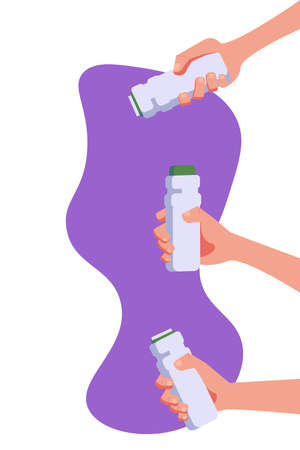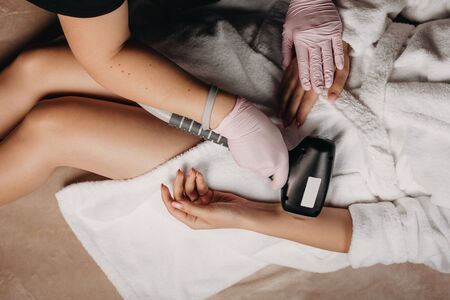1. Understanding CoolSculpting and Liposuction
When it comes to body contouring, two of the most popular procedures are CoolSculpting and liposuction. Both treatments aim to remove unwanted fat, but they work in very different ways. Understanding how each procedure works and their intended purposes can help you make an informed decision.
How CoolSculpting Works
CoolSculpting is a non-invasive fat reduction treatment that uses controlled cooling to freeze and eliminate fat cells. This process, known as cryolipolysis, targets stubborn fat deposits that don’t respond well to diet and exercise. Over time, the body naturally processes and removes the dead fat cells, resulting in a more sculpted appearance.
Key Features of CoolSculpting:
- Non-surgical: No incisions or anesthesia required.
- Minimal downtime: Most people can return to their daily activities immediately.
- Gradual results: Fat reduction occurs over several weeks as the body flushes out the treated fat cells.
- Targeted areas: Effective for small pockets of fat in areas like the abdomen, thighs, flanks, and under the chin.
How Liposuction Works
Liposuction is a surgical procedure that removes excess fat through suction. A small incision is made in the targeted area, and a thin tube called a cannula is inserted to break up and remove fat deposits. Liposuction provides immediate fat removal and is often used for larger amounts of fat reduction.
Key Features of Liposuction:
- Surgical procedure: Requires incisions and may involve anesthesia.
- Immediate results: Fat is removed instantly during the procedure.
- Recovery time: Patients typically need several days to weeks for full recovery.
- Larger fat removal: Suitable for individuals looking to remove significant fat deposits from multiple areas.
Main Differences Between CoolSculpting and Liposuction
| CoolSculpting | Liposuction | |
|---|---|---|
| Treatment Type | Non-invasive (no surgery) | Surgical (requires incisions) |
| Anesthesia | No anesthesia needed | Anesthesia may be required |
| Pain & Discomfort | Mild discomfort, temporary numbness | Soreness, swelling, bruising post-surgery |
| Treatment Duration | Around 35-60 minutes per session | A few hours depending on the area treated |
| Downtime & Recovery | No downtime; resume activities immediately | A few days to weeks for full recovery |
| Affected Areas | Small pockets of stubborn fat | Larger fat deposits across multiple areas |
| Results Timeline | Takes a few weeks to months as fat cells break down naturally | Immediate results with swelling subsiding over time |
| Permanency of Results | Permanently eliminates targeted fat cells if weight is maintained | Permanently removes fat cells but weight gain can affect results |
| Candidacy | Ideal for those close to their goal weight with stubborn fat areas | Suits individuals looking for more dramatic body contouring changes |
Effectiveness and Results
When deciding between CoolSculpting and liposuction, understanding how effective each procedure is and what kind of results you can expect is crucial. Both treatments aim to remove unwanted fat, but they work in different ways and deliver results on different timelines.
How Do the Results Compare?
CoolSculpting and liposuction both help reduce stubborn fat, but their effectiveness varies based on the amount of fat being removed and how quickly results appear. Heres a comparison:
| Factor | CoolSculpting | Liposuction |
|---|---|---|
| Fat Reduction Amount | Up to 25% reduction per treatment area | Can remove larger amounts of fat in one session |
| Time to See Results | Takes about 3 to 4 months for full results | Visible immediately, with final results after swelling subsides (around 3 months) |
| Permanence of Results | Permanent as long as weight is maintained | Permanent, but weight gain can affect results |
How Long Do the Results Last?
The fat cells eliminated by both procedures do not regenerate, meaning that results can be permanent if you maintain a stable weight. However, new fat cells can develop if you gain significant weight after either treatment.
Sustaining Your Results
No matter which procedure you choose, maintaining a healthy lifestyle with regular exercise and balanced nutrition is essential for preserving your results. While both treatments are highly effective, they should not be considered a substitute for weight loss or a healthy lifestyle.

3. Procedure and Recovery Time
What to Expect During the Procedure
CoolSculpting
CoolSculpting is a non-invasive procedure that uses controlled cooling to freeze and eliminate fat cells. During the treatment, an applicator is placed on the target area, and you may feel intense cold, tingling, or mild discomfort at first. However, this usually subsides as the area becomes numb. The session typically lasts between 35 to 60 minutes per treated area.
Liposuction
Liposuction is a surgical procedure that requires anesthesia. A small incision is made, and a thin tube (cannula) is inserted to suction out fat cells. Depending on the extent of the procedure, it can take anywhere from one to several hours. Since its an invasive surgery, there may be some level of discomfort during recovery.
Pain Levels and Recovery Time
| Treatment | Pain Level | Downtime | Full Recovery Time |
|---|---|---|---|
| CoolSculpting | Mild discomfort during treatment; temporary numbness and soreness afterward | No downtime; patients can return to normal activities immediately | A few days to a couple of weeks for any residual soreness to fade |
| Liposuction | Mild to moderate pain post-surgery; swelling and bruising are common | A few days to a week of rest recommended before returning to light activities | A few weeks to several months for complete healing and final results |
Post-Treatment Care
CoolSculpting Aftercare
No special aftercare is required for CoolSculpting. Patients may experience slight swelling, redness, or numbness in the treated area, but these side effects usually resolve on their own within a few days.
Liposuction Aftercare
Liposuction requires more intensive aftercare. Patients are often advised to wear compression garments for several weeks to help reduce swelling and support healing. Bruising and tenderness are common, and strenuous activities should be avoided for at least a few weeks.
4. Risks and Side Effects
When considering body contouring procedures like CoolSculpting and liposuction, its important to understand the potential risks and side effects associated with each. While both treatments are generally safe when performed by qualified professionals, they come with their own set of considerations.
Common Side Effects
Both CoolSculpting and liposuction have common side effects that patients may experience during recovery. Here’s a comparison:
| Side Effect | CoolSculpting | Liposuction |
|---|---|---|
| Swelling | Mild to moderate | Moderate to severe |
| Bruising | Mild | Common and more pronounced |
| Pain/Discomfort | Mild, temporary numbness or tingling | Mild to moderate soreness for weeks |
| Numbness | Temporary, usually resolves in weeks | Can last for several months |
| Downtime | No downtime, resume activities immediately | A few days to weeks of restricted activity |
Potential Risks of CoolSculpting
Although CoolSculpting is non-invasive, there are still some risks to be aware of:
- Sensitivity or Numbness: Some patients experience prolonged numbness or tingling in the treated area.
- Pain or Discomfort: Mild pain can occur post-treatment but usually subsides within a few days.
- Ineffective Results: Some individuals may not see the desired fat reduction after one session and may require additional treatments.
- Paradoxical Adipose Hyperplasia (PAH): A rare side effect where fat cells enlarge instead of shrinking, requiring further treatment.
Potential Risks of Liposuction
Liposuction is a surgical procedure, so it comes with greater risks compared to CoolSculpting:
- Anesthesia Risks: Since liposuction often requires anesthesia, there is always a small risk of complications related to sedation.
- Bleeding & Infection: As an invasive procedure, there is a risk of infection at the incision sites.
- Irrregular Contouring: Poor technique or uneven fat removal can lead to lumps, dents, or asymmetry in the treated areas.
- Blood Clots & Fluid Accumulation: In rare cases, liposuction can lead to blood clots or seromas (fluid build-up) that require medical intervention.
- Nerve Damage: Some patients report long-term numbness or changes in skin sensation following surgery.
The Bottom Line on Safety Considerations
Your personal health, medical history, and aesthetic goals will play a big role in determining which procedure is right for you. If you prefer a non-surgical approach with minimal downtime, CoolSculpting may be the better choice. However, if youre looking for more dramatic fat removal results and are willing to undergo surgery with longer recovery time, liposuction might be the better option. Always consult with a board-certified professional to discuss your specific needs and minimize any potential risks.
5. Cost Considerations
When deciding between CoolSculpting and liposuction, cost is a major factor to consider. Both procedures come with different price points, and several factors can influence the overall expense. Let’s break down the costs associated with each treatment.
Cost Breakdown: CoolSculpting vs. Liposuction
| Factor | CoolSculpting | Liposuction |
|---|---|---|
| Average Cost per Treatment | $2,000 – $4,000 | $3,500 – $7,500 |
| Anesthesia Required? | No | Yes (additional cost) |
| Surgical Facility Fees? | No | Yes (included in total cost) |
| Number of Sessions Needed | Multiple sessions may be required | Usually one procedure is sufficient |
| Downtime Costs (missed work, recovery time) | Minimal to none | Several days to weeks off work |
| Long-Term Maintenance Costs | Possible follow-up treatments | Permanent results with a healthy lifestyle |
Factors That Influence Pricing
Treatment Area Size
The size of the area being treated plays a significant role in determining the final cost. Larger areas, such as the abdomen or thighs, typically cost more than smaller regions like the chin or arms.
Number of Sessions Required
CoolSculpting often requires multiple sessions to achieve optimal results, which can increase the overall cost. In contrast, liposuction is usually a one-time procedure but has higher upfront expenses.
Provider Experience and Location
The cost of both procedures can vary depending on the provider’s expertise and the geographical location of the clinic. Treatments in metropolitan areas tend to be more expensive compared to smaller cities or towns.
Anesthesia and Facility Fees (Liposuction Only)
Liposuction requires anesthesia and is performed in a surgical facility, which adds to the total cost. These additional fees are not applicable to CoolSculpting since it’s a non-surgical treatment.
Which Option Offers Better Value?
If you’re looking for a more affordable, non-invasive option with little downtime, CoolSculpting may be a better fit for you. However, if you prefer a single procedure with more dramatic fat reduction results, liposuction could provide better value despite its higher initial cost.
The best choice depends on your budget, desired outcome, and willingness to undergo surgery. Consulting with a qualified provider can help you determine which procedure aligns best with your goals.
6. Which One Is Right for You?
Choosing between CoolSculpting and liposuction depends on several factors, including your lifestyle, body goals, and medical considerations. Both procedures have their own benefits and limitations, so it’s important to evaluate what works best for you.
Lifestyle Considerations
Your daily routine and activity level can influence which option is a better fit:
| Factor | CoolSculpting | Liposuction |
|---|---|---|
| Downtime | No downtime; resume normal activities immediately | Requires days to weeks of recovery |
| Pain Level | Mild discomfort during treatment | Soreness and swelling post-surgery |
| Exercise Routine | No restrictions after treatment | Avoid strenuous activity for a few weeks |
Your Aesthetic Goals
The results you want to achieve also play a major role in deciding the right procedure:
- If you have small areas of stubborn fat: CoolSculpting may be ideal since its designed for targeted fat reduction.
- If you want more dramatic changes: Liposuction removes larger amounts of fat in one session, making it better for more noticeable contouring.
- If you prefer gradual results: CoolSculpting results develop over a few months, allowing for a more subtle transformation.
- If you want immediate results: Liposuction provides visible changes right after recovery.
Medical Factors to Consider
Your health status and medical history may affect which procedure is safer for you:
- Candidates for CoolSculpting:
- You are close to your ideal weight but have stubborn fat pockets.
- You prefer a non-invasive treatment with no anesthesia or surgery.
- You don’t have conditions like cryoglobulinemia or cold agglutinin disease.
- Candidates for Liposuction:
- You need significant fat removal from multiple areas.
- You are in good overall health without major medical risks.
- You are willing to undergo surgery and recovery time.
The Bottom Line: Making Your Choice
If you’re looking for a quick, non-surgical solution with minimal downtime, CoolSculpting might be the better choice. However, if you want more dramatic results and don’t mind undergoing surgery, liposuction could be the way to go. Consulting with a qualified provider can help you determine the best approach based on your unique needs and goals.


